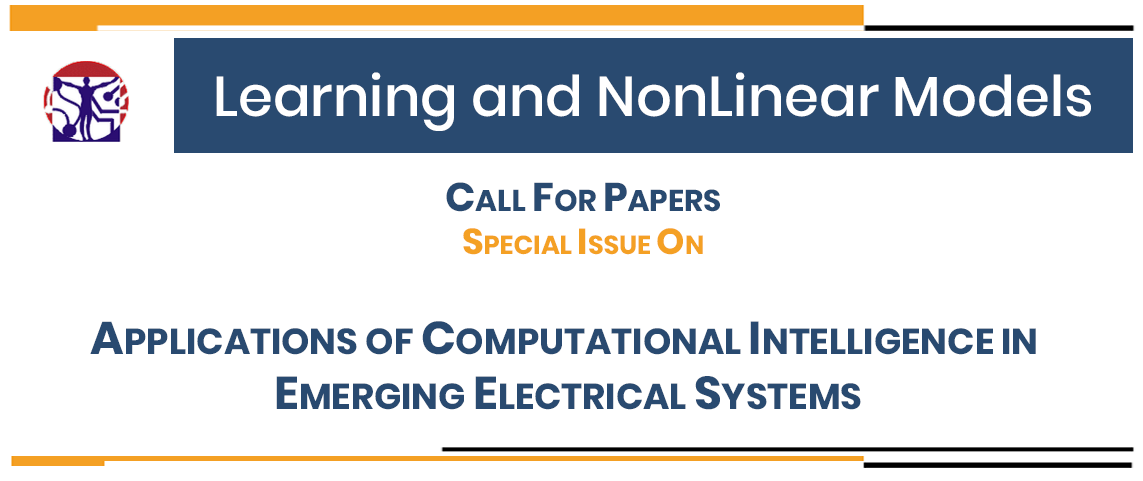
 |
Learning and NonLinear Models (ISSN 1676-2789) is the official journal of the Brazilian Society for Computational Intelligence (SBIC), and has been published online since 2003. The journal is committed with the use of persistent identifiers for both, papers and researchers. Therefore, all papers are permanently indexed with DOI and researchers are requested to include their ORCID identifier along the paper submission. All papers are open-access and there is no publication fee. The journal publishes papers reporting theoretical and practical advances in the several areas of Computational Intelligence. |
SPECIAL ISSUE
Researchers are invited to submit high-quality papers and surveys with focus on the most recent advances in Applications of Computational Intelligence in Emerging Electrical Systems. This Special Issue is focused on the use of computational intelligence tools (machine learning, deep learning, fuzzy systems, evolutionary computation, statistical signal processing, etc.), for the solution of different problems related to electrical systems. The scope of this special issue includes, but it is not limited to, the following topics:
• Smart Grids, Microgrids, and Virtual Power Plants
• Distributed energy resources
• Renewable energy sources
• Electric vehicles
• Optimization and control
• Time series forecasting
• Robotics
• Development of public datasets
• IoT devices
• Energy management
• Power system protection
SUBMISSION
Manuscripts must be written in English and prepared according to the journal template available here: https://sbic.org.br/lnlm/instrucoes-para-autores/. The PDF version (10-15 pages for regular papers, and 15-20 pages for surveys) should be submitted to the guest editors by e-mail (lazzaretti@utfpr.edu.br and vhferreira@id.uff.br). Papers will be reviewed by the guest editors and external referees. Papers previously published in conferences can be submitted provided it is significantly increased in quality and experiments/results. In this case, authors should submit the original paper published along a letter explaining the improvements done in the version submitted to LNLM
SCHEDULE
• Deadline for manuscripts submission: 2022, mar 30th
• Review results notification: 2022, may 30th
• Revised manuscript due: 2022, jun 10th
